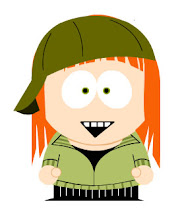 I know I'm not supposed to begin reading for the "Something About Me" reading challenge until August 1, and generally I'm a stickler for the rules, but hey, sometimes you just have to live a little. Anyway, I got home from vacation to find The Atonement Child by Francine Rivers on my dining room table. I had Bookmooched it for this challenge, and it had arrived while I was gone. So since I thought I had left the book I was reading at my mom's house in SC (turned out it was just in my camera case), I picked it up and started reading.
I know I'm not supposed to begin reading for the "Something About Me" reading challenge until August 1, and generally I'm a stickler for the rules, but hey, sometimes you just have to live a little. Anyway, I got home from vacation to find The Atonement Child by Francine Rivers on my dining room table. I had Bookmooched it for this challenge, and it had arrived while I was gone. So since I thought I had left the book I was reading at my mom's house in SC (turned out it was just in my camera case), I picked it up and started reading.General comments:
1 - The novel is obviously written by a very religious, staunchly pro-life author. I figured this out before I discovered the evangelizing note from the author in the back (which I didn't see until after I had finished the book), but don't be impressed, it was pretty much knock-you-upside-the-head obvious. Now maybe I've had my head under a rock, and it's common knowledge about this author, but I had never heard of her. Today I googled her, and it seems she is exactly what she seems to be. So good for her. I like people who are who they are.
2 - The novel has an agenda, and that is the pro-life agenda. Now, I generally have a problem with agendas, even when I agree with them, because it means I'm only getting one side of the story. But this book didn't try to hide it's agenda in any way, so it wasn't like the author was trying to pull a fast one.
3 - I found the pregnant rape victim considers abortion angle interesting, especially since it seems to be an example that is often used in abortion discussions. The plot revolves around Dynah Carey, a young woman who is raped while attending a Christian college, and how she and everyone involved in her life deal with the subsequent pregnancy. The main dilemma being, obviously, to abort or not to abort.
What I liked:
1 - The character Joe. He is what he is, he's not judgmental, and he stands by those he cares about. You can't help but like the guy. Plus, he said my favorite quote in the book:Tell me how on God's green earth we can dare offer salvation to a dying world when we're so busy shooting our own wounded.Which leads me to the next thing I liked.
2 - I liked that the author openly presented the hypocrisy of "being Christian" and "passing judgment." I find so often that those who quote the Bible the most are those who least exercise the tolerance on which Jesus built his ministry. They are often the first to condemn and to judge, which is disheartening, since I know somewhere in the Bible it says, "Judge not, lest ye be judged." It would be nice to hear them quote that once in a while. So it was refreshing and encouraging to see an author so openly pushing Christian values admit that a major fault with extremely religious folk is their jumping to judgment of others.
What I didn't like:
1 - In order to get her viewpoint across, the author often resorted to contrived dialogue. It just didn't seem realistic in many instances. The most obvious example being a meeting with several elderly women where they discuss abortion and abortion laws. It read like an anti-abortion public service announcement.
2 - The book in general didn't seem realistic. There was no counseling for the rape itself, Dynah just seemed to pretty much get over it. There was a very brief mention of the possibility of disease, that was never followed up on. Once she decided to have the baby, there were no longer conflicting feelings, no "how am I going to love this child completely when she is half my attacker?" feelings. It is all simply brushed aside in the rightness of the decision not to abort and the glow of love for the child. While I don't have experience in this subject, it just doesn't seem realistic that only nine months later a rape victim wouldn't still be a bit of an emotional mess, particularly a pregnancy-hormone loaded victim who had no counseling.
Overall, the book was very readable, and I got through it in 3 days. It was interesting, but very one-sided, and left me wondering what pro-choicers would say about some of the information given. I would have found it intellectually stimulating had some pro-choice viewpoints on the issues been completely presented and then argued against. By not presenting those conflicting viewpoints, the book is left open to attack from pro-choice activists. I think the novel could have been made a bit more realistic had Dynah, while not aborting because of her strong beliefs, gone through with the adoption option. While the novel was rife with conflicting emotions, I think a lot was left out or glossed over, particularly when it came to Dynah's feelings about her child.
This book was on Twiga's list, and based on what she said about why she picked it, I believe she must have attended a small ultra-conservative religious college, where she encountered a large number of self-righteous, judgmental people. I can only hope she had a few Joes to pal around with.


No comments:
Post a Comment